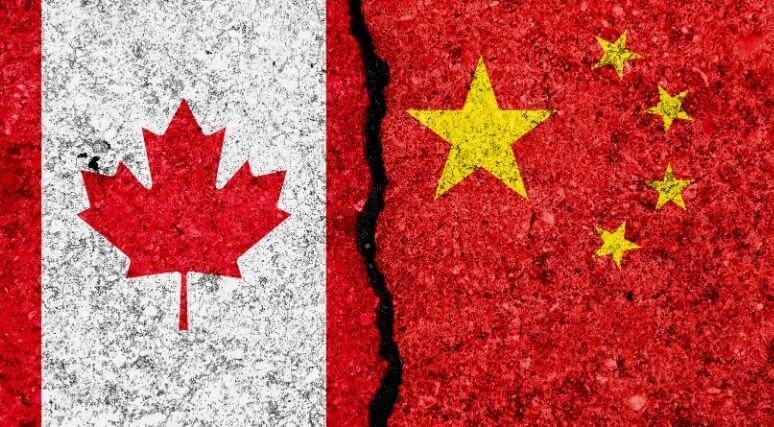This article originally appeared in the Globe and Mail.
By David Mulroney, March 14, 2023
Amid reports of Chinese foreign interference in Canadian elections, federal ministers Marco Mendicino and Mary Ng have voiced concerns that setting up a registry of foreign agents could unfairly target Canadians of Chinese origin and even prove racist.
But this argument doesn’t just prejudice people before any consultations even begin – it is also based on false assumptions about foreign agents and their victims.
Far from being racist, requiring transparency of those who speak, lobby, or disburse money for China or any other foreign state protects vulnerable members of diaspora communities, who are often the first targets of foreign interference. Indeed, the Chinese Communist Party has long prioritized the infiltration, coercion and harassment of diaspora communities worldwide as a means of advancing its power and influence. This has accelerated under Xi Jinping, whose vision of “the Great Chinese nation” uses patriotism as a cover for the extension of China’s extraterritorial reach. The party and its proxies routinely infiltrate student groups, cultural and community associations and Chinese-language media in foreign countries. In Canada, this has been enabled by the shameful failure of our own officials to protect diaspora members from the long arm of the Chinese state.
The most odious example of Beijing’s extraterritorial reach is the establishment of what have been referred to as overseas “police stations.” Human rights groups have said that Chinese officials use these places to interrogate and intimidate people of Han Chinese, Tibetan and Uyghur origin, hoping to compel their return to China to face prosecution. The RCMP is now reportedly investigating sites in British Columbia, Ontario, and Quebec. As welcome as these efforts are, it’s hard to understand why it has taken so long. It is reasonable to worry that, until recently, at least some Canadian police may have simply assumed that whatever went on in Chinese diaspora communities was China’s business.
Unfortunately, this isn’t the only indication that Canadian officials may be facilitating the steady accumulation of extraterritorial power by Chinese diplomats.
Show up at a Lunar New Year’s gala anywhere in the country and you’ll find Canadian politicians at all levels and from all parties falling over themselves to pay lavish tribute to China’s flag, anthem and diplomats. This joyous family celebration, which China’s communist rulers banned for many years, has been cynically co-opted by Beijing’s diplomats, who turn the event into a victory lap and a high-profile demonstration of their local authority. Instead of voicing a challenge at these events, Canadian politicians seem more intent on squeezing into the group photo with the presiding Chinese functionary.
Interference by the Chinese state is by no means limited to diaspora communities, something a registry of foreign agents would make clear. There is mounting evidence that China’s efforts are ambitious, sophisticated, and national in scope. Yet oddly enough, the fact that not all foreign agents are of Chinese ethnicity seems not to have occurred to Mr. Mendicino and Ms. Ng.
I have for some time advocated for an Australian-style foreign agent registry in Canada, one designed to include the names of everyone who is delivering Beijing’s talking points, disbursing its payoffs, and lobbying on its behalf. Such a list would almost certainly include more than a few residents of Canada’s capital, where many former ministers and mandarins remain after retirement to run associations, represent major firms, opine on nightly news panels, rub shoulders with serving officials and, in some cases, advance agendas on behalf of foreign paymasters. Canadians need greater transparency from this privileged and, it needs to be said, ethnically diverse community, which exercises considerable influence behind the scenes.
Former politicians and public servants should be required to report any arrangements in which they market to foreign states the knowledge, experience and contacts they gained while serving Canada, or that require them to perform any functions in Canada for such states. This would include disclosure of board memberships, consulting contracts, subsidized travel, appointments to political bodies, and other perks provided to themselves or family members, directly or indirectly by foreign states.
In addition, I’ve also recommended that work as a foreign agent render individuals ineligible for appointment to federal boards and agencies, and for membership in the Order of Canada or elevation to the Privy Council. How can we extend our continuing trust to individuals who have decided to serve a foreign state, especially one that is hostile to Canada? There is nothing “Honourable” or, indeed, “Right Honourable” about being on Beijing’s payroll.
Setting up a registry of foreign agents is in no way racist. But assuming it would contain only Chinese names is.
David Mulroney is the former ambassador of Canada to the People’s Republic of China and an Advisory Council member at the Macdonald-Laurier Institute.






